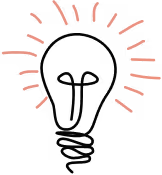I wrote about the basics behind blockchain, bitcoin, and ethereum back in April of 2018 — exactly three years ago! I thought it would be a fun and illuminating exercise to read what I wrote then and cover some new trends I’m seeing several years later.
Changes in Blockchain Technology
Blockchain has certainly arrived in the mainstream in 2020 and 2021. The pandemic exposed a dire need for digital currencies and digital assets. Major players on Wall Street and large corporations like Tesla established long positions in Bitcoin. As internet warfare has accelerated, so have the number of personal intrusions into our data. In some cases, it has even become an existential threat, like when a remote hacker tried to poison a Florida town's water supply. Many companies are now trying to solve complex problems using blockchain technology.
When I last wrote about blockchain, few practical uses existed in the mainstream beyond finance and gambling. While those two areas have exploded exponentially over the last years, there have been other significant adoptions of blockchain technology for a variety of uses.
Blockchain is spreading across industries
In 2018, blockchain had been evolving for over a decade, but it was still relatively new to the mainstream. Today, blockchain has grown far beyond its roots in cryptocurrency and banking.
In 2020, nonprofits such as the National Renewable Energy Lab (NREL) in Colorado began researching the use of blockchain to facilitate micro-transactions on our power grid between connected devices. The NREL has developed a software solution called foresee, a secure automation system that can predict future energy consumption in the user's home using a blockchain-based smart contract:
The software uses homeowners’ energy preferences—such as the temperature of their home or their energy budget—to control connected appliances within the home. In the blockchain experiment, foresee alerted the second home when it would be cheaper to buy renewable energy from its neighbor rather than paying the utility’s charges, then used a digital currency to complete the transaction. The demonstration showed the ability to automatically match energy generation and demand between these two homes.
Cryptocurrency and blockchain technology aren't just for financial services anymore. Blockchain solutions have the power to address a myriad of industry problems. We can expect to see blockchain adoption across other industries in the coming years, including home energy, healthcare, manufacturing, distribution, and professional services.
Blockchain security is becoming a necessity for the United States Government
As we saw in the summer of 2020, cyber intrusions have become so sophisticated that essentially the entire U.S. government and many private companies—such as Microsoft, McAfee, and Symantec—were caught up in the SolarWinds hack months before it was detected. To give a brief high-level synopsis of what happened in the breach, hackers breached the company SolarWinds’ software distribution system, allowing them to implant back-door access in the software. From there, they were able to clandestinely operate not only within SolarWinds’ network but also across all of its vendors using their software — including accounts at the U.S. Treasury.
It’s no secret that the U.S. power grid and general utility infrastructure are very much insecure and open to attack. Conversion to a smart grid based on blockchain would alleviate many security issues and make the system more fair and efficient. The time to adopt this type of technology is on the horizon—if not already here—and the promise of more secure systems is paramount to our progress technologically.
Cryptocurrency is evolving—and offers a new way to invest
One of the most common implementations of blockchain remains cryptocurrency. Since I last wrote, there have been numerous crypto coins that have ceased to exist, as well as many more that have come into existence. It’s clear that cryptocurrency will continue to be a part of our global economy, and one benefit of that is it has created a multitude of opportunities for social equity in our communities.
Blockchain-based cryptocurrencies have created access to lending to people for whom the traditional banking system excludes—i.e. bad credit, no credit—and has allowed people of all walks of life, in any corner of the world, to invest in the future economy.
Blockchain offers the makers of the world a way to operate in the digital economy without giving away their royalties to the standard gatekeepers like Amazon, Apple, and Google. In the art community, NFTs are allowing digital artists to profit from their work—in some cases in perpetuity through royalties when their works are resold. It has also allowed creators an accessible digital means for copyrighting their works without having to go through intermediaries that take away their profit.
The future of blockchain
Blockchain provides a more secure technology, and takes a more transparent approach than current mechanisms—that is to say big government and big business. Beyond the security benefits, there’s also an egalitarian slant, and a return to capitalist roots, in that it holds the promise of a more equitable and sustainable economy.
While blockchain’s uses constantly evolve, a key feature remains clear: it would be almost impossible to hack a blockchain network (especially the larger it becomes) with current technology. Blockchain solutions won’t entirely solve the problem of security and malicious hacking on their own. Nevertheless, the prospect of adopting genuinely trustful networks at the core of our technology is here—and we should use it. The problem with relying on central authorities (Microsoft, SolarWinds, Government) is that the integrity of their systems can be subverted, leaving all of us with a false sense of trust. At the least, with decentralized trust networks like blockchain, you can be confident of its integrity.



